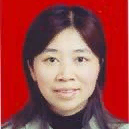International Journal of Image, Graphics and Signal Processing (IJIGSP)
IJIGSP Vol. 3, No. 4, 8 Jun. 2011
Cover page and Table of Contents: PDF (size: 323KB)
Three-dimensional Morphological Analysis for Geological Bodies and Application
Full Text (PDF, 323KB), PP.53-59
Views: 0 Downloads: 0
Author(s)
Index Terms
Geological body, 3-dimensional visualization, morphological analysis, mathematical morphology, Euclidean distance transform
Abstract
To address the spatial Morphological analysis of complex geological bodies in stereoscopic quantitative prediction of concealed ore bodies, a three-dimensional morphological analysis method for geological bodies based on 3-dimensional raster model under visualization environment was put forward by combining mathematical morphology with Euclidean distance transform theory. Firstly, the 3-dimensional visualization models for geological bodies were constructed on the basis of the 3-dimensional geological modeling (3DGM) technology; Secondly, the algorithm for extracting the surface shape trend of geological body with the 3-dimensional raster model was proposed by using mathematical morphology filtering. By the combination of morphological filtering, global set operation and three-dimensional Euclidean distance transform, the models for the quantitative analysis and hierarchical extraction of the shape undulance were established. Lastly, as a case study, the three-dimensional morphological analysis method was applied in analyzing quantitatively the Xinwuli magmatic body in Fenghuangshan ore field in Tongling, Anhui Province. By means of the calculation model of Euclidean distance field, the quantitative extraction of the shape trend and shape undulance as well as the angle between geological interface and trend surface, as the quantitative indexes of geological ore-controlling factors, were achieved after building the 3D raster models of the magmatic body. The results show that the morphological analysis method is feasible to calculate various morphological parameters of complex geological bodies and extract quantitative indexes of geological ore-controlling factors successfully for stereoscopic quantitative predication of concealed ore bodies.
Cite This Paper
Yanhong Zou,Xiancheng Mao,Wenfeng Xi,"Three-dimensional Morphological Analysis for Geological Bodies and Application", IJIGSP, vol.3, no.4, pp.53-59, 2011. DOI: 10.5815/ijigsp.2011.04.08
Reference
[1]ZHAO Peng-da. Three-Component Quantitative Resource Prediction and Assessments: Theory and Practice of Digital Mineral Prospecting [J]. Earth Science-Journal of China University of Geosciences, vol. 27, no. 5, pp. 482-489, 2002. (in Chinese).
[2]MAO Xian-cheng, ZOU Yan-hong, LU Xiao-qin, et al. Quantitative analysis of geological ore-controlling factors and stereoscopic quantitative prediction of concealed ore bodies [J]. J Cent South Univ Technol, vol. 16, no.6, pp. 987−993, 2009.
[3]Simon W. H, 3D geoscientific modeling computer Technique for geological characterization [M], 1994, South Sea Int Press Ltd., Hongkong.
[4]Wu Li-xing. Topological relations embodied in a generalized tri-prism (GTP) model for a 3D geoscience modeling system [J]. Computers & Geosciences, vol. 30, no. 4, pp. 405-418, 2004.
[5]Gong Jian-ya, Cheng Peng-gen and Wang Yan-dong. Three-dimensional modeling and application in geological exploration engineering [J]. Computers & Geosciences, vol. 30, no. 4, pp. 391-404, 2004.
[6]Jing Ming, Mao Pan, Qu .Hong-gang, et al. GSIS: A 3D geological multi-body modeling system from netty cross-sections with topology [J]. Computers & Geosciences, vol. 36, pp. 756-767, 2010.
[7]Sud A, Govindaraju N, Gayle R, Manocha D. Interactive 3D distance field computation using linear factorization[C]. Proceedings I3d 2006 - ACM SIGGRAPH Symposium on Interactive 3D Graphics and Games. USA: Association for Computing Machinery, 2006, pp. 117-124.
[8]Jones M W, Baerentzen J A, Sramek M. 3D distance fields: A survey of techniques and applications [J]. Transactions on Visualization and Computer Graphics, vol. 12, no. 4, pp. 581-599, 2006.
[9]Sakuragi F, Nakamoto M, Sasama T, Nakajima Y, Sato Y, Tamura S. System simulator for structural description and error analysis of multimodal 3D data integration systems [J]. Electronics and Communications in Japan, vol. 90, no. 8, pp. 325-338, 2007.
[10]Zuliansyah M, Supangkat S H, Priyana Y, Machbub C. 3D topological relations for 3D spatial analysis[C]. 2008 IEEE International Conference on Cybernetics and Intelligent Systems, CIS 2008. USA: Inst. of Elec. and Elec. Eng. Computer Society, 2008.
[11]Fetita C, Brillet P-Y, Prêteux F J. Morpho-geometrical approach for 3D segmentation of pulmonary vascular tree in multi-slice CT[C]// Pluim J. P. W, Dawant B. M. Medical Imaging 2009 - Image Processing. USA: Proc. SPIE, 2009.
[12]Felix J H S, Cortez P C, Holanda M A, Albuquerque V H C, Colaco D F, Alexandria A R. Lung and chest wall structures segmentation in CT images[C]. Proceedings of VIPIMAGE 2007 - 1st ECCOMAS Thematic Conference on Computational Vision and Medical Image Processing. Netherlands: Taylor and Francis/Balkema, pp. 291-294, 2008,
[13]Naegel B. Using mathematical morphology for the anatomical labeling of vertebrae from 3D CT-scan images [J]. Computerized Medical Imaging and Graphics, vol. 31, no. 3, pp. 141-156, 2007.
[14]Kiwanuka F N, Ouzounis G K, Wilkinson M H F. Surface-area-based attribute filtering in 3D[C]. Mathematical Morphology and Its Application to Signal and Image Processing. Netherlands: Springer Berlin / Heidelberg, pp. 70-81, 2009.
[15]Tankyevych O, Talbot H, Dokladál P, Passat N. Spatially-variant morpho-hessian filter: Efficient implementation and application[C]. Mathematical Morphology and Its Application to Signal and Image Processing. Netherlands: Springer Berlin / Heidelberg, pp. 137-148, 2009.
[16]Li Yong, WU Hua-yi. Filtering airborne LIDAR data based on morphological gradient [J]. Journal of Remote Sensing, vol. 12, no. 4, pp. 633-639, 2008. (in Chinese).
[17]TAO Jin-hua, SU Lin, LI Shu-kai. Method of extracting building model from lidar point cloud [J]. Infrared and Laser Engineering, vol. 38, no. 2, pp. 340-345, 2009. (in Chinese).
[18]LIN Hong-Wei, WANG Guo-Jin. Three dimensional signed Euclidean distance transform and its applications [J]. Chinese Journal of Computers, vol. 26, no. 12, pp. 1645-1651, 2003. (in Chinese).
[19]Gonzalez R G, Woods R E. The digital image processing (The second edition) [M]. Beijing: China Electronic Industry Press, 2003: 463-474. (in Chinese).
